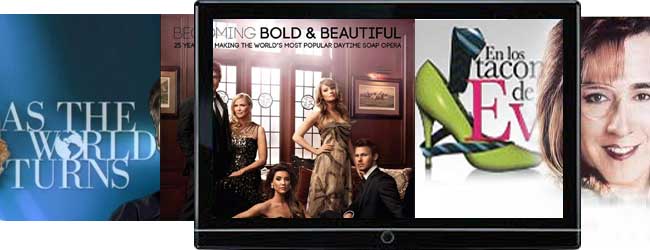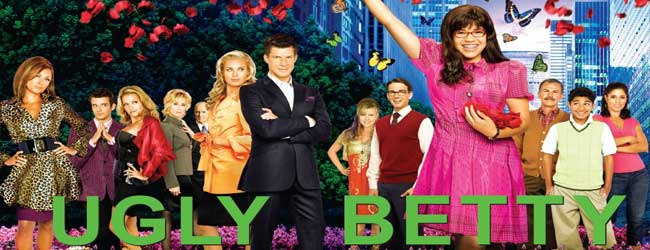“The great spectacle of emotions” is how Jose Ignacio Cabrujas, a famous and belated Venezuelan author, defined Soap operas. This is perhaps the best way of introducing a healthy description, which is also questioned by all the World’s intellectuals, regarding what this genre is and will be to the great public.
However they may be called: serials, soap operas or melodramas, these stories expound on a complete gamut of emotions from love to hate, and play on the passionate, rash, foolish, sinful and meaningless acts committed by characters that lure their audiences with every day’s hour-and-a-half episode. Episodes, which become seasons and which, in turn, go on for years, have set records in the US where some have aired for over more than one decade.
A genre long thought to be enjoyed primarily by women and also a cultural product destined for the masses, soap operas niched the lower social, economic and academic strata of society. However, ratings have grown overtime to include university-goers, professionals, high society ladies, adolescents and even children with new dramatic series targeting this market.
When asked, “I only watch Brazilian soaps,” say the highbrowed, middle-to-high Venezuelan classes with university degrees; for Brazilian serials boast a good intellectual reputation and are full of interesting and disparate plots. Brazilian melodramas are aesthetic, true-to-the-period, meticulously investigated productions which faithfully mirror history. By comparison, they render their South American facsimiles mundane.
Only minutes later, in the heat of conversation, do these same stiff-necks relate details of other melodramas produced in Mexico, Colombia, and Argentina, details which would not only be unknown had they not watched the series in question on a daily basis but explain why Brazilian soaps have lower ratings when compared to those sophomoric narratives from Mexico, Venezuela and Argentina. And, it is just and necessary to separate this group from Colombia’s where producers have taken risks and launched innovative stories, such as Ugly Betty, The Patron, and In Eva’s Shoes with excellent results.
It seems that, screams, cursing, shrieks, and female-protagonist make-up which are impervious to poolside mishaps or conversely, hair-pulling, cat-scratching female villains, perfectly eye-lined by fully curled eyelashes, who are awakened in exquisite silk pyjamas, are still a more attractive venue than the fathomless human condition.
Why not mention that perfectly gallant, ripped and velvety-voiced stud, whose cleanliness is impenetrable to his profession, be it law, construction, potato-farming, bullfighting or even open-heart surgery and the entourage of women who are single, divorced, widowed, saintly, not-so-saintly, highly or not-so educated, freethinking, freelancing and dreamy-eyed who adore him and accompany their leisure-time or even house-cleaning listening and visualizing HIM, the ideal soap-opera man?
Why? What is the reason behind the attraction to a melodramatic, sugar-free life instead of one’s own? Why are these fibre optic personages allowed into our routine-ridden homes? Could it be imagination?
You could believe that the spectator identifies herself, but almost every soap-watcher knows how cartoonish, exaggerated, stereotypical and implausible the plots are. Poor, trite, beautiful Cinderella who finds her prince: no one believes in you anymore! No, it is not a question of empathy.
Some serials promote moral and ethical values like charity, compassion, faith and hope. Some even sow the seeds of an awareness of some type, such as Crystal, written by Delia Fiallo in 1985, which launched a campaign asking Spanish women to submit themselves to breast examinations. However, these are scarcely the norm and happen only when the story is successful.
Soap Opera success is measured by its audience rating not its veracity.
George Clooney once stated that a TV actor is viewed as a friend whom we frequently see, unlike a theatre actor whom we see from time to time. This indeed may be the very factor influencing the connection. Its everydayness which is similar to that liked or even disliked neighbour with whom we converse and chat, greet or, at best, have coffee in order to gossip about other friends and their lives; even if we should keep our noses in our business. In essence, having coffee is like turning the television on to see your favourite Soap.
Soap Operas are not a lost genre, not even remotely on the way to extinction; but, as in all industry, good times and bad times may have challenged South American Soap Operas to compete with those great North American ones much to their chagrin.
Not only dramas, but melodramas as well, need to shed their skins with each passing year; and when it has to do with tears, scratches and viperous vixens, these are overrun with never-ending plots.

By Abigail Truchsess
Abigail Truchsess holds a degree in Social Communication and Diploma in Children's Literature. Her long long experience in writing scripts for soap operas in Venezuela covers a wide range of stories, styles and authors, as well as storylines for female and child audiences. Currently she works as a freelance writer for stories for children, and promotes reading and passion for literature by storytelling in schools and parks.
Translated by: Phillip J. Brandel
More Global & Local articles /
Do you wish to write for Colors?







